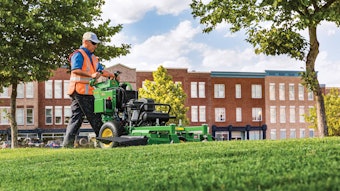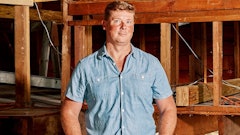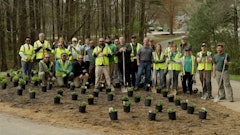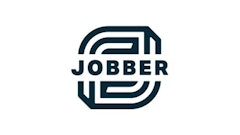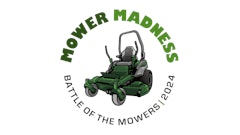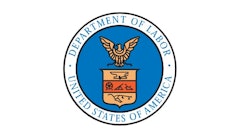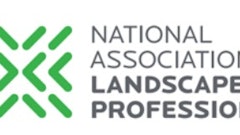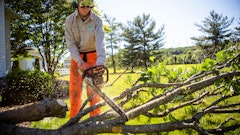It’s easy to put safety issues on the back burner. But that’s the worst move, or non-move, that any landscape contractor can make.
Our profession’s fatality rate is more than three times higher than the national average for all industries, and we have the fifth highest fatality rate and fourth highest lost workday rate among all industries. As business owners, the question is: Can we afford to take our eye off the safety ball to concentrate instead on our financial situation and gearing up for the busy season? The answer is, No Way! At a minimum, accidents are expensive and disruptive, and, in the worst case scenario, they cause incredible pain for families of accident victims.
The key to making a company less accident-prone goes beyond having a safety program where rules are policed and enforced. It involves creating a safety culture that is driven by an awareness that our industry is a high-risk industry, along with an understanding that there are several tangible benefits to being safe. Creating a safety culture also involves undertaking a paradigm or attitude shift that makes safety a top priority—giving it the same strategic importance as doing quality work, finding efficiencies and making a profit.
Two issues have created an even greater sense of urgency for giving safety top priority: the economy and the ever-changing nature of our business. Regarding the latter, many of us find ourselves performing new services thanks to new market dynamics and client preferences. These new services are often accompanied by new safety concerns. For example, a colleague of mine, Laurie Erdman, PLANET Safety and Risk Management Committee Chair, notes that growing interest in sustainable landscape practices, especially the installation and maintenance of green roofs, brings into focus different safety issues for contractors. Working on roofs requires, among other things, the use of fall protection, not to mention training employees to work with cranes and other “foreign” pieces of equipment.
Similarly, the down housing market has been the catalyst for design/build and installation contractors to enter into the landscape maintenance arena, again asking employees to operate equipment with which they may be unfamiliar. New services, clients and equipment bring with them new risk, and the need to update safety procedures and further develop a strong safety culture.
Eye on the ball
Unfortunately, the economy has taken top priority for most contractors around the country. Now more than ever, we’re all looking for ways to reduce overhead and retain margins. Being safe and saving money, though, are not mutually exclusive. An effective safety culture can help companies reduce insurance premiums, avoid heavy fines from OSHA, and increase production.
Did you know, for example, that for the last three years, OSHA has included the green industry on its top seven list of high-risk industries? Did you know that a Workers’ Compensation claim can ultimately cost your company four times the original claim cost—in training a new employee, loss of production, and physical damage to equipment?
Helping hand
Landscape contractors need not be alone when it comes to creating an exceptional and effective safety culture. We have plenty of resources at our disposal, not the least of which are equipment manufacturers. PLANET and your state associations are there to help as well. Just as an example, members of PLANET’s STARS Safe Company Program receive monthly communications, including tailgate and checklist tips, a “Safety Program for Green Industry Companies” CD, and can join a network of peers who share the same focus on safety.
STARS membership is available industry-wide at no charge. To join, applicants are asked to sign a Safe Company Pledge that outlines the steps they will take to develop a safety culture. PLANET also produces several publications and resources devoted to safety, and it sponsors a safety listserve at SafetySAVES.org. Like STARS, this resource is available to everyone in the industry. Monitored by PLANET’s Safety and Risk Management Committee, this website allows participants to share safety issues, concerns and best practice solutions.
Just last fall, PLANET also renewed a special alliance with OSHA. Through the alliance, OSHA and PLANET will collaborate on developing training resources for industry employers and employees, including youth and those with low literacy levels and limited English-speaking abilities. Information will be disseminated through electronic media and assistance tools, OSHA’s and PLANET’s websites, and events such as the Green Industry Conference, GIE+EXPO, and Student Career Days.
Laurie Erdman emphasizes that PLANET, its Safety and Risk Management Committee and OSHA share a common denominator: safe work environments. “Through this alliance, we intend to further identify workplace exposures and eliminate injuries,” she relates. “Regulations set forth by OSHA are the foundation for worker safety, and are paramount to injury prevention. Together we will continue to create programs and develop training materials so employers can educate workers about the importance of preliminary planning. We are excited to move forward in our collaborative effort to address hazards and improve our industry’s safety record.”
Improving our safety record is what creating a safety culture is all about. So please, join together with PLANET, your suppliers and your employees to develop this culture. Remember, the effort must begin at the very top—and it requires company owners and managers to convey a safety message at every opportunity and work to engrain safe work habits as part of all everyday activities.
Once engrained, safety will also become self-sustaining. A company knows it has developed a true safety culture when working in a safe manner becomes second nature to all employees—and is immune to any and all distractions.
David Snodgrass, president of Dennis’ Seven Dees Landscaping Inc. in Portland, OR, is a member of PLANET’s Safety and Risk Management Committee.




